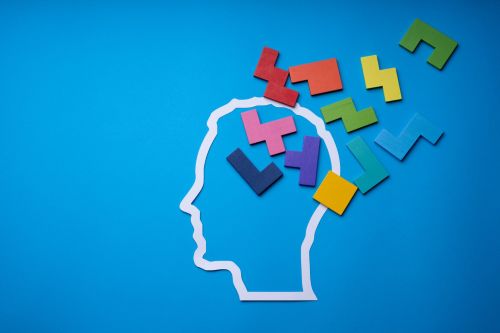ADHD AND EATING DISORDERS: WHAT IS THE LINK? By Elle Kelly, RD
Posted on
Attention deficit hyperactivity disorder (ADHD) has been associated with a high level of comorbidity with various psychiatric disorders.1 Eating disorders (EDs) share similar symptoms with ADHD, and research has found that there is an increased likelihood of being diagnosed with an ED if someone has ADHD.
 Whilst there is no single cause for ADHD,1 it is thought to be associated with an imbalance in brain chemistry,2 with evidence suggesting that individuals with ADHD may have deficiencies of dopamine,3,4 which is an essential part of the body’s reward circuit. This can lead to increased urges to participate in behaviours, such as overeating and substance use, in an attempt to achieve the same reward that others may get from less intense behaviours.
Whilst there is no single cause for ADHD,1 it is thought to be associated with an imbalance in brain chemistry,2 with evidence suggesting that individuals with ADHD may have deficiencies of dopamine,3,4 which is an essential part of the body’s reward circuit. This can lead to increased urges to participate in behaviours, such as overeating and substance use, in an attempt to achieve the same reward that others may get from less intense behaviours.
PREVALENCE OF EDs AMONG THOSE WITH ADHD
Girls with ADHD are four times more likely to have an ED than girls without ADHD and six times more likely to present with bulimia nervosa (BN).5
Binge eating disorder (BED) is commonly seen amongst individuals with ADHD, and is thought to be related to the low dopamine levels associated with ADHD.6 Binge eating is often associated with a loss of control around eating and impulsivity, which are commonly seen amongst those who have ADHD.7
WHAT ARE THE FEATURES OF ADHD AND HOW DO THEY RELATE TO EDs?
Hyperactivity
Being hyperactive can make focusing on one task quite difficult, and this is one of the core features of ADHD. This can make it difficult to plan and prepare meals, which can lead to skipping meals or reliance on fast food. Skipping meals regularly can increase the likelihood of overeating at the next meal, and these disordered behaviours can increase the susceptibility of developing an eating disorder.
Impulsivity
Impulsivity is a common feature of ADHD and may lead to eating as a reaction to environmental cues as opposed to eating in response to hunger. This can look like impulse buying, boredom eating, or binge eating.
Emotional dysregulation
Emotional dysregulation is a common symptom of ADHD and relates to an inability to respond to emotions appropriately. This can lead to turning to coping mechanisms that are not productive, such as binge or comfort eating.
 SUPPORTING CLIENTS WITH AN ED WHO HAVE ADHD
SUPPORTING CLIENTS WITH AN ED WHO HAVE ADHD
A higher prevalence of ‘eating disorder not otherwise specified’ (EDNOS) (now known as ‘other specified feeding or eating disorder: OSFED) has been observed among those with ADHD.8 This stresses the importance of being aware of the features of ADHD that may be impacting someone’s behaviours around food, which may not necessarily fit the categories of anorexia, bulimia or BED.
Being aware of the features of ADHD is important in treatment planning. For example, being impulsive can make it difficult to consider future consequences of actions, which can make it hard to stick to a treatment plan.
Individuals with ADHD can struggle with disorganisation and sometimes find plans overwhelming, so supporting them to plan their food shop, keeping meal plans simple and suggesting alternatives such as easy-to-prepare or readymade meals can be helpful.
Elle Kelly, RD, BSc, MSc
Elle is a freelance specialist dietitian, running a clinic to
support clients with eating disorders, disordered eating and
athletes looking to improve their performance and relationship with food.
Instagram: @ellekellynutrition
Website: eknutrition.com
References
- Thapar A, Cooper M, Jefferies R, Stergiakouli E (2012). What causes attention deficit hyperactivity disorder? Archives of disease in childhood, 97(3), 260-265. https://doi.org/10.1136/archdischild-2011-300482
- NHS (2021). Retrieved from: https://www.nhs.uk/conditions/attention-deficit-hyperactivity-disorder-adhd/causes/#:~:text=Brain%20function%20and%20structure&text=Other%20studies%20have%20suggested%20that,chemicals%20may%20not%20work%20properly
- Volkow ND, Wang GJ, Newcorn J, Fowler JS, Telang F, Solanto MV, Pradhan K et al (2007). Brain dopamine transporter levels in treatment and drug naive adults with ADHD. Neuroimage, 34(3), 1182-1190
- Huang J, Zhong Z, Wang M, Chen X, Tan Y, Zhang S, Wang H (2015). Circadian modulation of dopamine levels and dopaminergic neuron development contributes to attention deficiency and hyperactive behaviour. Journal of Neuroscience, 35(6), 2572-2587
- Biederman J, Petty CR, Evans M, Small J, Faraone SV (2010). How persistent is ADHD? A controlled 10-year follow-up study of boys with ADHD. Psychiatry research, 177(3), 299-304
- Meule A (2017). Commentary: Questionnaire and behavioural task measures of impulsivity are differentially associated with body mass index: a comprehensive meta-analysis. Frontiers in Psychology, 8, 1222
- Reinblatt SP, Leoutsakos JMS, Mahone EM, Forrester S, Wilcox HC, Riddle MA (2015). Association between binge eating and attention‐deficit/hyperactivity disorder in two paediatric community mental health clinics. International Journal of Eating Disorders, 48(5), 505-511
- Fernández-Aranda F, Agüera Z, Castro R et al (2013). ADHD symptomatology in eating disorders: a secondary psychopathological measure of severity? BMC Psychiatry 13, 166. https://doi.org/10.1186/1471-244X-13-166
